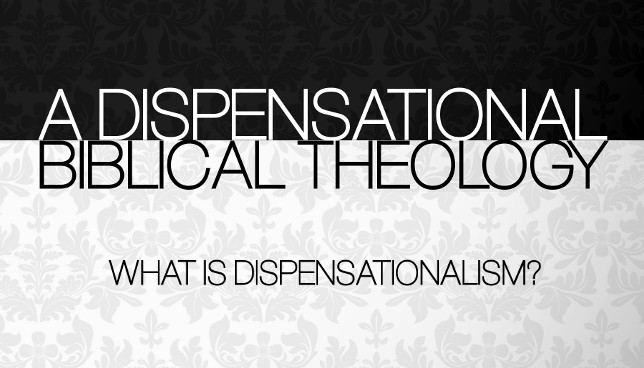by Dr. Elliott Johnson1
Excerpt from the upcoming A Dispensational Biblical Theolgy, which will be published by Bold Grace Ministries and will be available in the Spring of 2016.
Charles Ryrie has answered this question in a definitive fashion in two works building upon the works of Darby, Scofield, and Chafer.2 But these two works raise another question. In the forward of Ryrie's Dispensationalism Today, Frank Gaebelein asserts that "Dispensationalism is not a theology but rather a method of interpretation helpful in grasping the progress of revelation."3 While he does not explain what he means by it not being a theology, it could be that Dispensationalism does not take the shape of a systematic theology. Evangelicals typically define a systematic theology by its soteriology. But Dispensationalism is not ultimately defined by its soteriology. In its history, there have been Calvinists and Arminians who have claimed to be Dispensationalists. Dispensationalism bears a resemblance to Biblical Theology, an approach dependent on the idea of progressive revelation in Biblical history. Dispensationalism stresses a unique view of the Church and of eschatology in history. What is important is Gaebelien's focus on the role of Dispensationalism in providing a lens for a correct reading of the progress of revelation. One contribution of Dispensationalism is its claim to provide a single and consistent hermeneutic to interpret the whole canon.
On the other hand, Ryrie posits that Dispensationalism provides a philosophy of history unified by a doxological goal: "the differing dispensations reveal the glory of God as He manifests His character in the differing stewardships."4 That glory of God in the broadest perspective is introduced in the two creation accounts. The first creation account introduces the history of the earth as we now know it. In the Biblical perspective, history is viewed as involving conflict at a fundamental level (Gen 3:15). In the conflict, evil is tested for value and for power. Will the serpent and its offspring bring about good and have the power to achieve its ends? At the same time, the conflict will reveal Eve and her offspring as governed by God. And in the conflict with evil, God's glory will be revealed. There will be grace for those overwhelmed by evil and truth challenging the ways of evil. In the end, the glory of grace and truth will overcome and defeat evil in the conflict.
The new creation holds out hope for a creation free from evil and with the promise of experiencing the fullness of God's glory. Rather than the new creation being a fulfillment of the first creation, it is a fresh start revealing God's glory disclosed in His yet unknown fullness, apart from conflict with evil.
The Biblical story is a theology because it is God's story. The story features dispensations which are distinguishable economies in the outworking of God's purposes.5 What is distinctive is the sequence of economies focusing on the conflict between God's progressive revelation to His stewards, confronting evil and its claim to rule. The sequence of these economies is as follows:
1. Evil in conflict with God's Word of promise
2. Evil directly confronted by God's law introducing the theocracy in Israel
3. Evil overcome by Jesus Christ's First Advent yet leaving a world suffering from evil with the Gospel
4. Evil defeated by Christ's return in judgment to rule, yet without removing evil until the evil one is destroyed
Eric Sauer puts forward that these "new periods always begin only when from the side of God a change is introduced."6 While some things continue, others are annulled, and fresh principles are added.
As a result, Ryrie suggests that Dispensationalism "views the world as a household run by God. In His household-world, God is dispensing or administering its affairs according to His own will and in various stages of revelation in the passage of time."
1Dr. Elliott Johnson is Senior Professor of Bible Exposition at Dallas Theologial Seminary, the founder of the Asian Theological Seminary, and author of Expository Hermeneutics: An Introduction.2Charles Ryrie, Dispensationalism Today (Chicago: Moody, 1966) and Dispensationalism (Chicago: Moody, 1995).
3Ryrie, Dispensationalism Today, p. 8.
4Ibid., p. 18
5Ibid., p. 28.
6Eric Sauer, The Dawn of World Redemption (Grand Rapids, MI: Eerdmans, 1951), p. 194.
